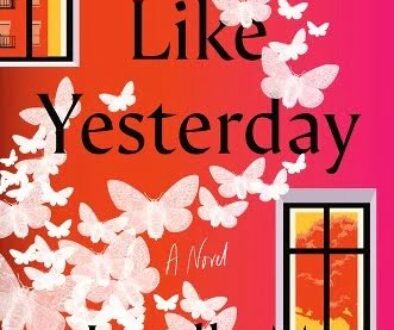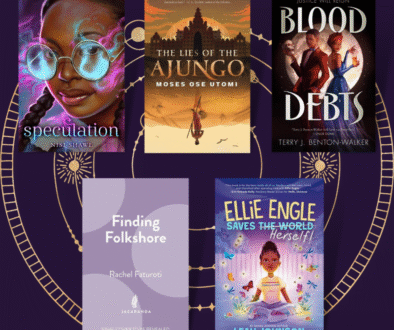The Plot Thickens: Son of the Storm

Itching to get your hands on a high fantasy epic trilogy inspired by African—Benin specifically—history and folktales? Looking for dimension in multiple point of view characters without it turning into an overwrought or confusing mess? Suyi Davies Okungbowa, author of The Nameless Republic trilogy has you covered in the series’ engrossing first entry, Son of the Storm.

In this book we get to know some very dynamic main characters. There’s Danso, a university scholar who is out of place in the capital city of Bassa due to his mixed heritage and whose personality harkens towards the aptitude for story collecting, writing, and adventurousness of Strange the Dreamer’s Lazlo Strange, though he is also heedless of the social preservation he needs. There is Esheme, a court-trained student whose self-preservation and social machinations rival those of How to Get Away with Murder’s Michaela Pratt and Game of Thrones’ Cersei. There is also Danso’s reluctant and rule-abiding—nearly at Percy Weasley’s level—personal valet cum guard, Zaq, and a mysterious warrior with the best of Slytherin house’s attributes, Lilong. Through the course of the book we probe into the inner workings of each character, with a few more interesting additions, lending towards worldbuilding and character development that showcases not only the primary adventure but also the definitive changes that only these voices could make in this world. In fact, it is Danso’s curiosity about his mysterious origins and his inability to consider the ramifications of his actions, despite making a point to study the failings of an empire, that leads to the journey that involves the interests of each of these characters.

Danso uses a setback he faces with the leadership of Bassa and the region’s university as a sign to finally explore the questions he’s always held about his mother and the isolated region she hailed from before mysteriously vanishing from his life as a toddler. Zaq is unwillingly pulled along and Lilong serves as another catalyst of sorts for his decision to walk this path. Meanwhile, Esheme has to deal with what this self-imposed exile means for her social standing as his fiance, while at the same time her mother, who runs a spider network within the empire, is incapcitated. All of this upheaval is connected to the search for rumored fragmented remains of a magic system that has become the stuff of legend by the empire. As the only person raised in a community that has maintained their connection to this magic, Lilong holds many answers that those in power would like to remain undisclosed. The power imbalances and historical erasure to maintain systems of inequity are key to understanding this society and their relationship with magic. As the story progresses, we learn more about the way people at all tiers of society are imposed upon by the interest of maintaining the status quo, which means there’s a lot of xenophobia explored. Because this is a society of Black people who value the darkest-skinned highest in social standing, the ways in which this subject matter is approached are interesting yet still have some bite behind them—especially the anti-immigrant sentiment. The author also inserts climate change reflection into the story in a way that I found useful to the story and not at all conspicuous.
All in all, I’m interested to see where this series goes next and how it continues to explore power dynamics and personal responsibility for the world around you. The characters are engaging, the world is well built, and the narrative could be a strong device for interrogating real world issues.
Special thanks to @CaffeineTours and @OrbitBooks for an Advanced Readers Copy of the book and participation in this blog tour.




05/18/2021 @ 7:43 PM
Enjoyed the review. Hearing great things about this book.